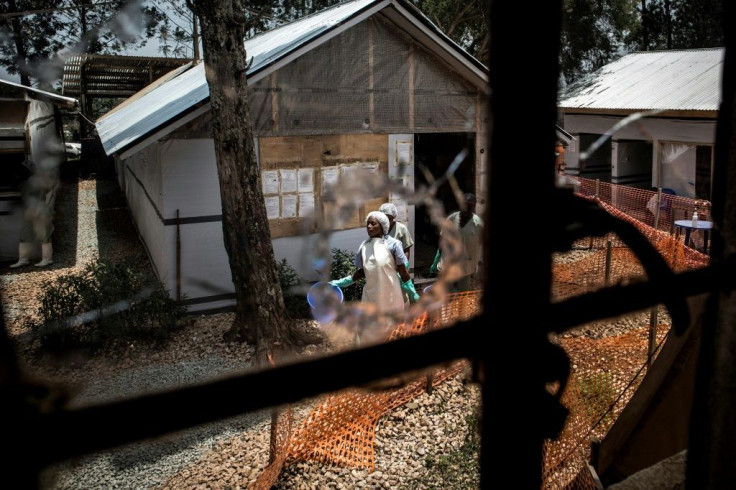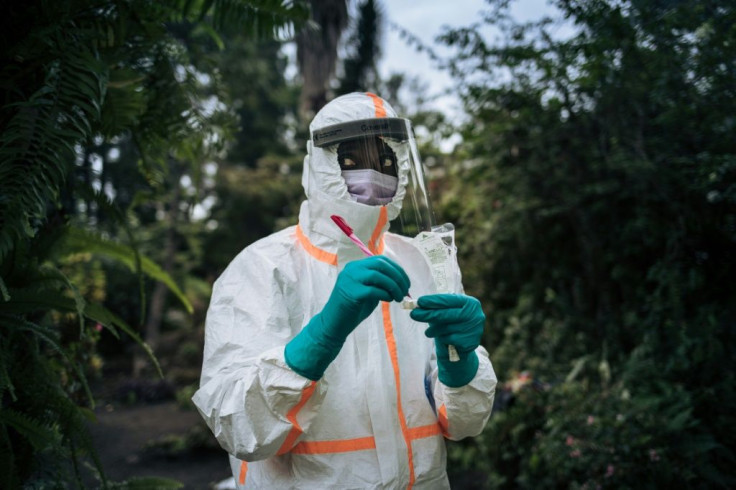Congo Faces Ebola Virus Outbreak During Coronavirus Pandemic: 'It's A Psychological Blow'

KEY POINTS
- The Democratic Republic of the Congo thought it had finally gotten rid of Ebola when a new case emerged on April 10
- Exactly one month earlier, on March 10, the country confirmed its first case of COVID-19
- The true extent of COVID-19's spread was unknown as DRC doesn't have money or the equipment to conduct widespread testing
Already struggling against the reappearance of an Ebola virus disease (EVD) outbreak it had hoped was finally conquered, the impoverished Democratic Republic of Congo (DRC) now has to contend with another deadly danger -- COVID-19.
The first confirmed COVID-19 case was recorded in this country of 84 million people on March 10. That single case has ballooned to 235 confirmed cases as of Monday (April 13). At least 20 people have died from the highly-contagious coronavirus while 16 recovered.
As DRC has neither the money nor the equipment to conduct widespread testing for the COVID-19, the true extent of the disease's spread was unknown but was likely into the thousands now. Compounding this deadly new threat was a resurgence of the lethal "Kivu Ebola epidemic" that began Aug. 1, 2018.
DRC health authorities had hoped they'd defeated Kivu epidemic when cases fell to zero on Feb. 17, 2020. But after 52 days without a case, DRC surveillance and response teams confirmed a new case of Ebola in early April. On April 10, the World Health Organization (WHO) confirmed a case of EVD in the city of Beni.
Several Ebola-related deaths were later reported. The news demoralized the country, especially its long-suffering health workers, who now have to battle a resurgent Kivu epidemic and COVID-19 at the same time.
“While not welcome news, this is an event we anticipated" said WHO Director-General Dr Tedros Adhanom Ghebreyesus. "We kept response teams in Beni and other high risk areas for precisely this reason.”
Dr Matshidiso Moeti, WHO Regional Director for Africa, said the organization has worked side by side with health responders from the DRC for over 18 months and its teams were right now supporting the investigation into this latest case.
"Although the ongoing COVID-19 pandemic adds challenges, we will continue this joint effort until we can declare the end of this Ebola outbreak together.”
More than 2,200 people died from the Kivu ebola epidemic. By November 2018, this epidemic had become both the biggest Ebola outbreak in the DRC's history, and the second-largest Ebola outbreak in recorded history. Only the horrific 2013-2016 Western Africa epidemic was much worse. On May 3, 2019, the DRC Kivu outbreak death toll topped 1,000 persons.
“Morally it’s very discouraging since we’ve worked for a year and a half, two years, on this epidemic and (we could finally) start to breathe easy,” said Dr. Lusungu Mutuza to France 24, as he also described the psychological toll the two-front battle has taken on the country. “Then suddenly we have to start from zero again. It's a psychological blow.”
Health workers were now fumigating the streets of Kinshasa, the country's capital and COVID-19 outbreak epicenter. Also disinfected were the Palace of the People, which houses the National Assembly and Senate.

© Copyright IBTimes 2025. All rights reserved.




















